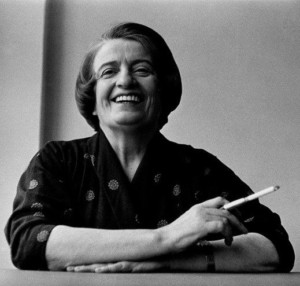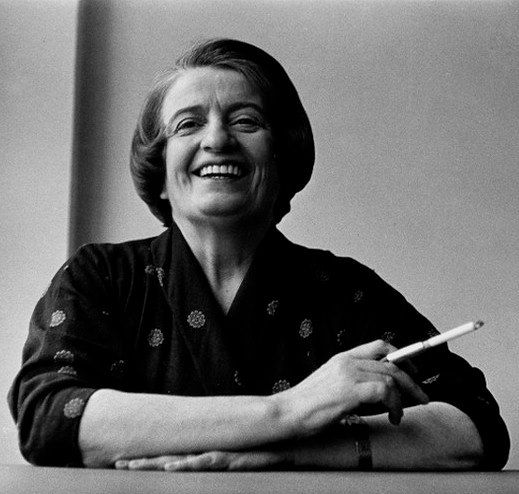 Ayn Rand
Ayn Rand
Consciousness is the faculty of awareness—the faculty of perceiving that which exists.
One can study what exists and how consciousness functions; but one cannot analyze (or “prove”) existence as such, or consciousness as such. These are irreducible primaries
Awareness is not a passive state, but an active process. On the lower levels of awareness, a complex neurological process is required to enable man to experience a sensation and to integrate sensations into percepts; that process is automatic and non-volitional: man is aware of its results, but not of the process itself. On the higher, conceptual level, the process is psychological, conscious and volitional. In either case, awareness is achieved and maintained by continuous action.
Directly or indirectly, every phenomenon of consciousness is derived from one’s awareness of the external world. Some object, i.e., some content, is involved in every state of awareness. Extrospection is a process of cognition directed outward—a process of apprehending some existent(s) of the external world. Introspection is a process of cognition directed inward—a process of apprehending one’s own psychological actions in regard to some existent(s) of the external world, such actions as thinking, feeling, reminiscing, etc. It is only in relation to the external world that the various actions of a consciousness can be experienced, grasped, defined or communicated. Awareness is awareness of something. A content-less state of consciousness is a contradiction in terms.
Means of survival
Consciousness—for those living organisms which possess it—is the basic means of survival.
Man’s consciousness is his least known and most abused vital organ. Most people believe that consciousness as such is some sort of indeterminate faculty which has no nature, no specific identity and, therefore, no requirements, no needs, no rules for being properly or improperly used. The simplest example of this belief is people’s willingness to lie or cheat, to fake reality on the premise that “I’m the only one who’ll know” or “It’s only in my mind”—without any concern for what this does to one’s mind, what complex, untraceable, disastrous impairments it produces, what crippling damage may result.
The loss of control over one’s consciousness is the most terrifying of human experiences: a consciousness that doubts its own efficacy is in a monstrously intolerable state. Yet men abuse, subvert and starve their consciousness in a manner they would not dream of applying to their hair, toenails or stomachs. They know that these things have a specific identity and specific requirements, and, if one wishes to preserve them, one must comb one’s hair, trim one’s toenails and refrain from swallowing rat poison. But one’s mind? Aw, it needs nothing and can swallow anything. Or so most people believe And they go on believing it while they toss in agony on a psychologist’s couch, screaming that their mind keeps them in a state of chronic terror for no reason whatever.
The fact [is] that man’s consciousness possesses a specific nature with specific cognitive needs, that it is not infinitely malleable and cannot be twisted, like a piece of putty, to fit any private evasions or any public “conditioning.”
Just as man’s physical existence was liberated when he grasped the principle that “nature, to be commanded, must be obeyed,” so his consciousness will be liberated when he grasps that nature, to be apprehended, must be obeyed—that the rules of cognition must be derived from the nature of existence and the nature, the identity, of his cognitive faculty.
Excerpted from aynrandlexicon.com. Ayn Rand was a Russian-American novelist, playwright, screenwriter and philosopher.







